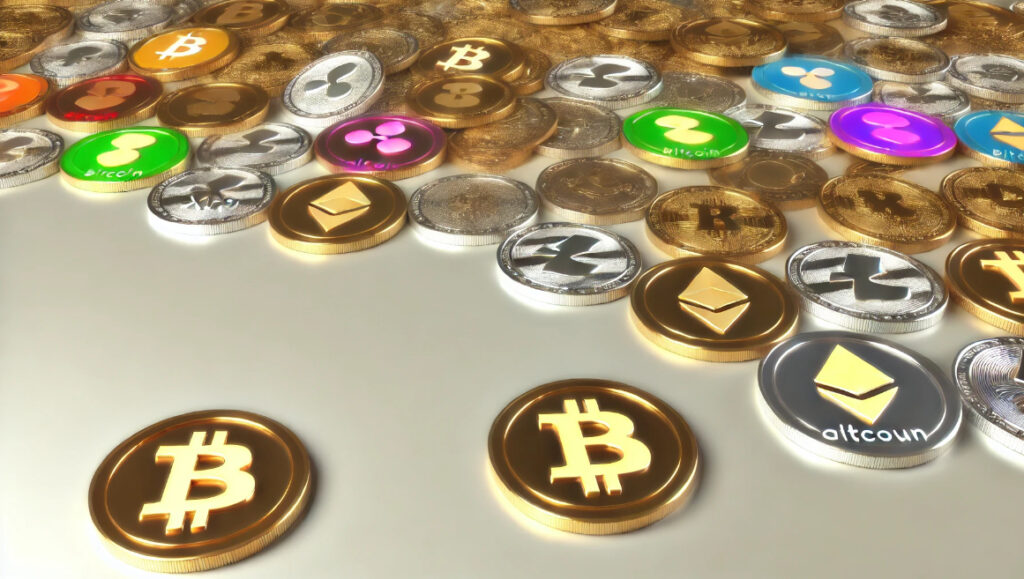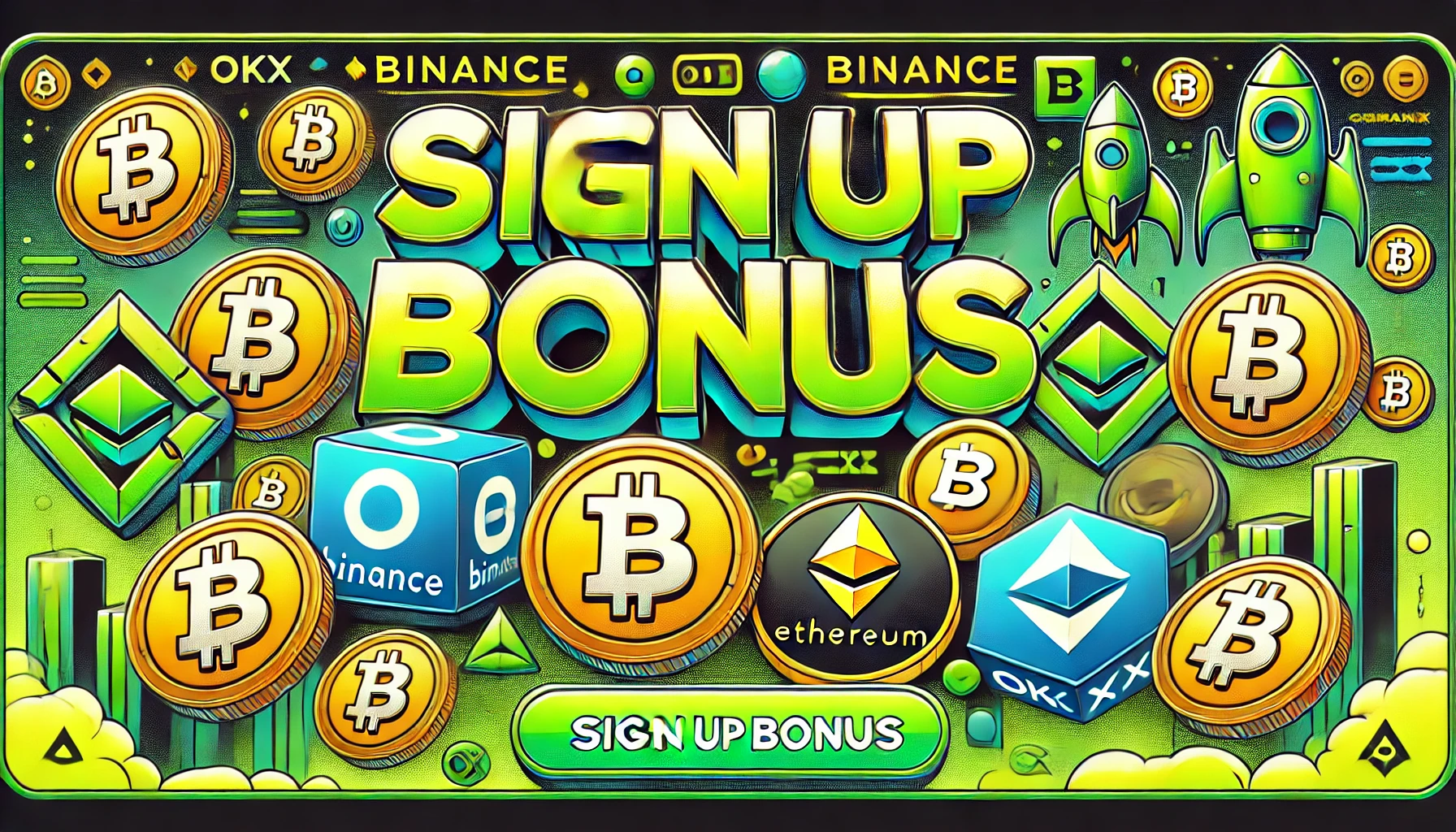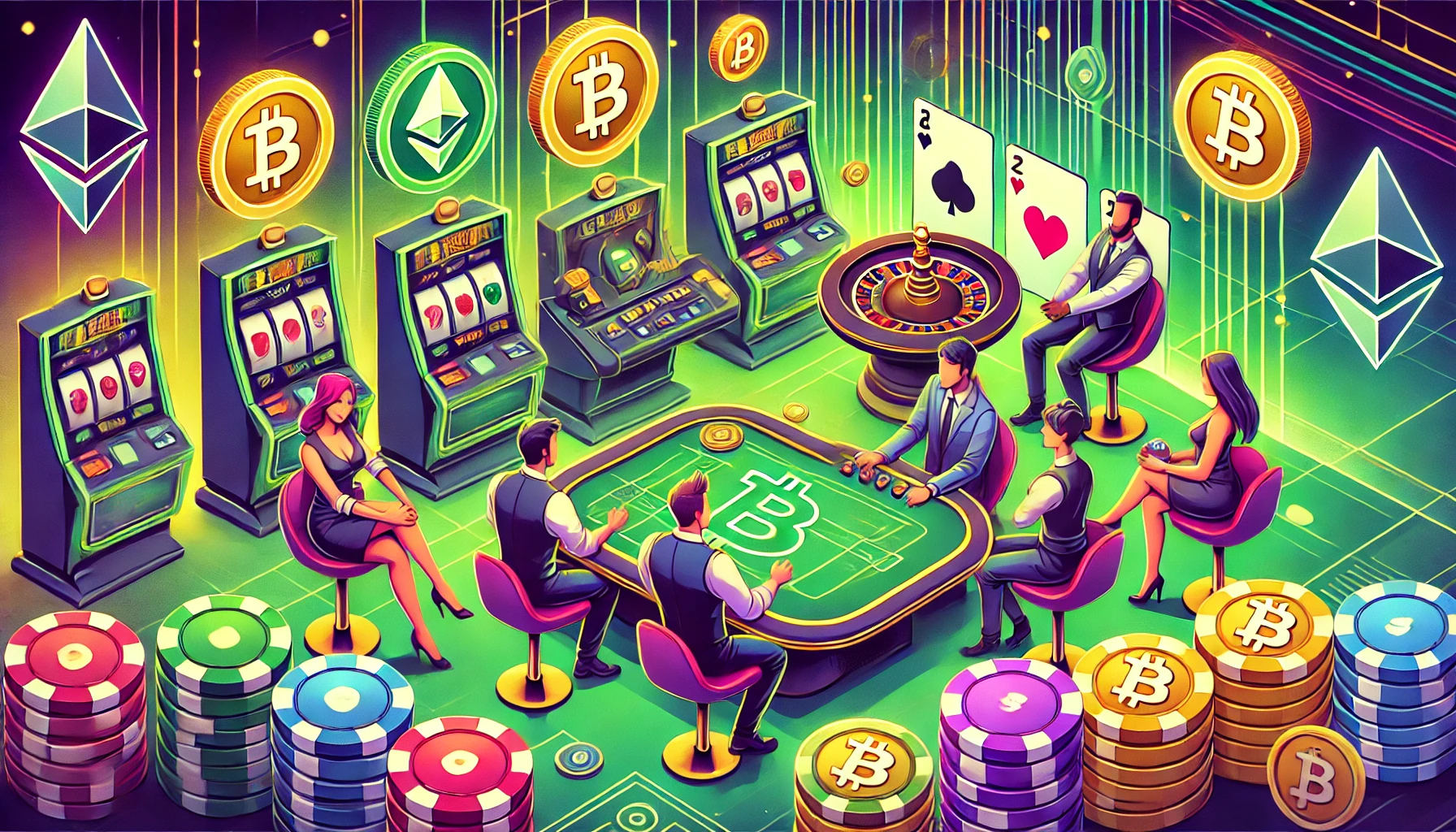Bitcoin is hands down the most dominant cryptocurrency, but Altcoins contribute $1.21 Trillion of market cap value according to Coingecko. There are almost 10,000 crypto tokens available on CoinMarketCap alone which does not include the projects still in development or not listed. This article explores what altcoins are, the different types and the best methods to trade altcoins.
Best Altcoin Exchanges
| Wallet | Advantages | CTA |
| Binance | A lot of altcoins – High liquidity | Start using Binance |
| Coinbase | User-friendly – Highly secure | Sign up on Coinbase |
| KuCoin | Low fees – Features like margin trading | Discover KuCoin |
| Gemini | Wallet insurance – Excellent mobile app | Join Gemini |
Top Altcoin Exchanges
When it comes time to choose the best altcoin exchanges, the factors discussed above are very important, but here is a direct comparison of some of the top altcoin exchanges.
- Binance: For an advantage, Binance has a lot of altcoins and high liquidity. A problem is that the platform might be too complicated for beginners and inaccessible in some countries due to regulations.
- Coinbase: Coinbase is great because it is very user-friendly and highly secure. Some issues are that the fees are higher when you compare it to other exchanges and the altcoin options are much less compared to Binance.
- KuCoin: This exchange has a lot of altcoins, low fees and some interesting features like margin trading. Some issues are that there is little to no regulation and the platform is not beginner-friendly.
- Gemini: Gemini exchange provides wallet insurance which is a layer of security that makes the user feel safe. The Gemini mobile app is also excellent for dealing with everything about altcoin trading.
Some tips for choosing the best exchange:
- Make sure the exchange has the coin you want to trade and if it is available and compliant in your country.
- Compare the fees that different platforms have if you know you will be trading a lot.
- Some exchanges have better security measures than others. Look into their track records before making a decision.
Every trader will have a different favorite platform; some might even have more than one. You should determine how you want to trade first and use that decision to find an altcoin trading platform that works for you and has the right balance of factors you need.
What Are Altcoins?
Altcoin is just the short form of “alternative coin”; all cryptocurrencies, which aren’t bitcoin, fall into this category. There are some arguments about whether Ethereum is big enough not to be considered an altcoin, but for this article, all coins that are not bitcoin are altcoins.
Bitcoin shocked everyone when it was announced in 2009, with its system not seen elsewhere. It was a comprehensive digital currency, and new ideas called Altcoins emerged. The first examples were Litecoin and Namecoin in 2011. The reason? The creators thought there were limitations to bitcoin and that they could correct those with their coins. Today, there are thousands of altcoins in the market.
Investors see altcoins as digital currencies that provide quick and often astronomical returns on initial investments. If traded the right way, they can incredibly boost one’s portfolio. Ethereum presented its smart contract functionality to create an ecosystem for more altcoins to be created and traded.
More time passed, and other ecosystems, such as Solana, Ripple, and Cardano, came into place. Each claimed to have advantages over the other, and some of these were true. The benefits include transaction speeds, fees, and security measures in place. The latest forms of Altcoins came with meme coins, the most volatile part of the lot.
As you can see, altcoins must belong to an ecosystem to function. Most ecosystems are forks of the two main ones – Bitcoin and Ethereum. A fork is simply a copy of a blockchain, and some adjustments are made to differentiate between the two. Every developer can study a blockchain or ecosystem, make changes, and introduce themselves. There are popular forks everywhere and one of the most popular is Ripple.
For those interested in exploring more about other blockchain technologies and tokens, check out our comprehensive guides on:
- Exploring Solana: A Complete Guide to the High-Performance Blockchain
- Earn Crypto Browsing with Basic Attention Token (BAT)
- Stellar Coin: Connecting Economies with Ease
- Chainlink: Decentralized Oracle Network Explained
- MANA Coin: The Currency Powering Decentraland’s Metaverse
- NEAR Protocol: Scalability Through Sharding
Types of Altcoins
It is important to know that some altcoins fall under multiple categories because the use case can be wide enough to satisfy all conditions stated. The different types of altcoins are:
- Payment Tokens: These are altcoins used to exchange value in an ecosystem among the users. Litecoin (LTC) and Bitcoin Cash (BCH) serve as prime examples of payment tokens because of how they are used.
- Stable Coins: Altcoins are very volatile in nature. Volatility refers to the rapid changes in the prices of tokens in the cryptocurrency space. Stablecoins achieve this by holding the asset being protected in fiat currencies like dollars or precious metals like gold stored in real life banks or agencies. They still have the occasional price fluctuations but nothing as serious as the other tokens. Examples are USDT and USDC.
- Security Tokens: A security token is one that is used to show proof of someone’s ownership of an asset in a company. They represent assets that have been tokenized. Tokenization happens when the value of an asset is represented by a token. Any real-life asset can be tokenized. Stocks, bonds, and even real estate can all be tokenized. Because of the involvement of real-life items, security tokens are regulated by the Securities and Exchange Commission. Security tokens include Polymath (POLY), Templum (TEMP), and Securitize (SECU).
- Utility Tokens: These are special altcoins only useful within a particular network. They are used to perform tasks in a network or ecosystem, such as processing transactions or minting new coins. They are often given as a reward for completing important tasks. Examples of Utility tokens are Ether for the Ethereum chain and BNB, a coin used for transactions in the Binance exchange.
- Memecoins: As mentioned earlier, these altcoins have very high volatility. They grow and reduce in value quickly. They are altcoins backed by investors or influencers and are often a joke or parody of a coin.
Altcoins to Watch
With cryptocurrency adoption rates getting higher, more altcoins will grow as a direct result of that process. Some altcoins like Ethereum, Cardano, and Solana have strong foundations, good fundamentals, and legitimate use cases, which are the criteria for evaluating good altcoins. These tokens have grown in value over time and they have even more potential for growth than their current levels. While CoinMarketCap usually updates its list of the top cryptocurrencies based on their market cap, other top five altcoins to watch come from several crypto analysts are Ethereum (ETH), Cardano (ADA), Solana (SOL), Polygon (MATIC), and BNB (BNB).
Criteria to consider when evaluating Altcoins
If you want to invest in an Altcoin, it is essential that you consider vital factors to avoid getting the rug pulled. This is a term given to a situation where a developer or team of developers get people to invest in their altcoins. Once it reaches a particular stage, sell all the coins to access the real money people have invested. This is a widespread scam. Key factors you need to keep in mind are things like the team and the people behind the project, market potential, and potential token use cases.
How to Trade Altcoins
The rewards you can get from trading altcoins are a lot. This is a little step-by-step guide for you to know before you get started.
- Research the altcoin you want to invest in
- Decide the crypto exchange you want to use for your investments
- Create an account with the crypto exchange and verify your account
- Deposit funds into your account
- Place your order and buy your altcoin
Factors to Consider
There are numerous altcoin exchange platforms for you to start trading. Here are the factors you need to check before identifying the finest altcoin exchanges:
- Security: Do some fundamental research on how the security processes that are involved, such as two-factor authentication and cold storage, are with these exchanges.
- Fees: Cryptocurrency exchanges are allowed to charge their own fees for services that are performed on their platform. Fees for depositing and withdrawing among others.
- Liquidity: Exchanges must have high liquidity available for altcoin trading.
- Customer Support: Responsive customer service is essential to any exchange offering.
Trading Strategies
Having a strategy when you want to start Altcoin trading is a good plan; some common altcoin trading strategies are:
- Day trading which is buying and selling the coin within 24 hours so you can reap the profit from the short term price volatility.
- Swing trading is a strategy where people get their coin and then gold them for a longer period, could be days or weeks so that they can get the benefits of price volatility.
- HODLing: This is when you buy the altcoin intending to hold it for a long time, usually years in anticipation for huge profits.
Risks and Considerations
Altcoin trading comes with a lot of risks. that should be taken note of. There is very high volatility with Altcoins. Some of them have swings that could be 100x in value or make you lose all your investment in seconds. There are also regulatory factors that should be considered which could affect the availability of altcoins you own or want to trade.
To reduce the risks you might face, make sure that you spread your portfolio around multiple assets. Platforms also have stop-loss orders that you can take advantage of to reduce potential loss when trading.
A lot of projects make unrealistic promises of what their altcoins will do; do your own research to avoid getting into problems. Invest only what you can afford to lose and if you keep learning, you will navigate this market successfully.
Conclusion
This article has given you all the knowledge you need to get started with altcoin trading. Do well to follow this rule as judiciously as possible and also do your own research and you might as well be on your way to making profits in altcoins trading. It is very important to keep in mind that trading cryptocurrencies are very risky as they are volatile, and there is the potential of losing part or all your investments. It is advised you stay informed and remain cautious if you want to venture into them. Good luck and Happy trading!
Frequently Asked Questions
What are the risks of investing in altcoins?
There is always a risk in Cryptocurrency, and the risk is even bigger with altcoins. Risks like volatility, rug pulls, regulations, and project failures are all present. Make sure to do your research
Why are Altcoins important?
They are important because they allow users to diversify their portfolios, and if you invest in the right ones, the value of your investment could grow exponentially.
How do I choose the right altcoin to invest in?
Factors like the project’s fundamentals, team expertise, market demand, and long-term viability are what a person should think about before investing in an altcoin.
Can altcoins replace traditional fiat currencies?
Cryptocurrency in general is not likely to replace traditional fiat currencies but they are meant to coexist and complement existing financial systems.
Is it possible for altcoins to be stored securely?
Exchanges are usually safe, but if you want to do even better, you can use hardware wallets for better security and to keep your coins offline.

 Learn
Learn  November 6, 2024
November 6, 2024  16 min.
16 min. 









